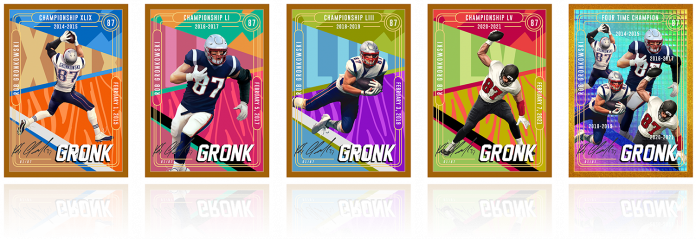As great as it has been to see young artists starting their careers in the NFT space, this technology has also opened up loads of opportunities for established brands and IPs to better engage their audiences.
In the past year alone, we’ve been privy to the rise and fall of NBA Top Shot, car manufacturers like McLaren and Lamborghini minting NFTs, and Time Magazine releasing an entire issue as an NFT. Even the WWE has entered the mix.
The NBA and WWE are far from the only sports entities engaging with NFTs, though. Following the strong presence of NFTs at the Super Bowl, and the launch of its own NFT marketplace, the NFL recently announced an upcoming play-to-earn (P2E) game that is slated to be the first of its kind.
Taking Moneyball literally
In partnership with Mythic Games, the NFL recently unveiled its upcoming P2E mobile game: NFL Rivals. It’s slated to place players in the role of general manager for a virtual football team, featuring digitized versions of players from the NFL’s storied 100+ year history.
The game is also touted as having a “play to own” model, meaning players will be free to trade and exchange their highest-value players on the open market. Ahead of its planned 2023 launch, Mythic Games has announced a series of drops themed around each of the NFL’s 32 franchises.
Undoubtedly, these two factors will make this upcoming game a much more engaging product for longtime football fans than unlicensed free titles like FootballGM (even if it’s admittedly fun to mess around in). However, anyone chomping at the bit in anticipation of making money from NFL Rivals may need to temper their expectations.
The challenge of maintaining a licensed game
Have you ever wondered why traditional licensed sports game franchises like NBA 2K or Madden release games year after year? It’s not just a way for them to make money. The sports game landscape looks like this mostly due to the constraints set on game developers by their licenses with major sports leagues.
In an ideal world, these contracts serve to mutually benefit each party. The sports league gives the game developer exclusive rights to create video games based on their IP. In turn, the sports league gets a high-quality game to further drive brand awareness and, thereby, both attract new fans and increase engagement from their existing audience. Meanwhile, the game developer gets a product they can sell (obviously). And everyone is happy…for a time.
For the sake of flexibility, both parties will normally agree to licensing agreements with eventual expiry dates. Upon approaching the expiry date of the license, each party is free to decide whether or not they want to renew this agreement. This can sometimes lead to rather dire consequences. For proof of the problem, we need only look to EA. Their wildly successful FIFA franchise recently came to ruin, as they lost the FIFA license earlier this year.
Sadly, a similar fate befell F1 Delta Time; one of the oldest and most successful P2E games in the NFT space. Animoca Brands’ failure to renew their license with F1 saw the landmark game shut down, leaving its player base holding the bag.
Despite the pedigree found in Mythic Games’ workforce, as demonstrated by their team of industry veterans that have worked on titles like Call of Duty, World of Warcraft, and Guitar Hero in the past, as well as the NFL’s official endorsement of the product, the two parties are still beholden by their licensing agreement. If this relationship ever sours in the future, the game could easily disappear in an instant, just like what happened with F1 Delta Time.
Of course, it remains to be seen whether licensing will be an issue in this instance. Currently, it all seems to be smooth sailing. But as NFTs become more mainstream, and more brands become involved in the Web3 movement, the conversations happening around licensing need to evolve.

